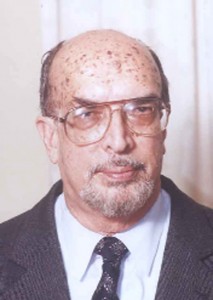By Rudy Insanally
Former Foreign Minister of Guyana
I am pleased to join in this public tribute to Sir Shridath (Sonny) Ramphal on the occasion of his eightieth birthday this year.

Like so many of Guyana’s diplomats who had the privilege of serving under Sonny’s stewardship at the Ministry of Foreign Affairs in the early post-independence years, I recall with deep admiration and appreciation the profound influence which he exerted on our individual careers and of course, on the shape and thrust of our country’s diplomacy.
During the difficult Cold War years which followed our freedom in 1966, he unerringly led our country through one diplomatic minefield after another by adhering strictly to a policy of Non-Alignment and by astute strategizing.
I recall our hosting of the meeting of the Non-Aligned Foreign Ministers in 1972. It was a major endeavour for a country as small as ours, but one which we were able, under Sonny’s leadership, to complete successfully.
To this day, I remember vividly having to manage a team of very temperamental interpreters and translators who, at several stages of the conference threatened to subvert its outcome. Nor will I forget having to deliver documents in the wee hours of the morning to ensure that all was ready for the day’s deliberations. However, my colleagues and I worked with good cheer for our Chairman’s sake. Our reward came when the curtain fell and there was general recognition that the agenda had been masterfully settled. Even on the thorny issue of Cambodia, Ramphal was somehow able to perceive consensus when there was seemingly none.
Sonny’s energy – both intellectual and physical – have always seemed to me to be inexhaustible. Once, on an official visit to Peru, after a sleepless night to travel and speech-drafting, our erstwhile Foreign Minister hit the ground running to begin a whirlwind official programme. The ground, in this instance, happened to be in the rarefied atmosphere of Cuzco and Machu Picchu where mere mortals like myself had to plead the effects of the lack of oxygen. Even now, three decades later, Sonny is always on the road, and ready to travel the globe. Above all, he is a man of ideas and picturesque speech. One has only to read some of his writings to appreciate the poetic prose which, whatever the subject, always flows readily from his pen. This gift of languages enable him to speak passionately on each subject that engages his mind, whether it be the peace and development of his native Guyana, the deeper integration of the Caribbean region or indeed any major issue or international interest and concern. He is indeed an international statesman of the first order who is able to transcend frontiers at will and perform with brilliance on the world stage.
As Secretary-General of the Commonwealth for three terms of office (1975-1990), he was an articulate and ardent champion for the freedom and development of peoples everywhere – but more particularly, in this period, for the oppressed people of South Africa still suffering under apartheid’s yoke. During these years, he served on no less than five prestigious international commissions set up to report on global concerns including the Brandt Commission on International Development, the Palme Commission on Disarmament and security, the Brundtland Commission on Environment and Development, the Commission on Humanitarian Issues and the South Commission chaired by Julius Nyerere. In the early seventies he was a candidate for the post of Secretary General of the United Nations and I believe, a popular choice. However, although among the most qualified in the field, he was perhaps considered too bright and independent of mind for the position by the major powers.
Now, at the zenith of his career, ‘Sonny’ Ramphal has chosen to return to the Caribbean – the region where his heart lies. As evidenced in the report of the West Indian Commission which he also chaired, he is a firm believer in deeper and wider integration. While some of the report’s ideas have since been accepted, the time for others is yet to come. A major accomplishment has been the creation in 1994 of the Association of Caribbean States which brings together twenty-five states including Caricom, Cuba, the Dominican Republic, Haiti, the Central American countries, Colombia, Mexico and Venezuela in several major areas of cooperation. It is a splendid tribute to Ramphal’s vision of a Common-wealth of the Caribbean.
One would think that having had such a long and distinguished career, Sir Shridath would now be hanging up his shingle and take up fishing or some such sport. Not so, it seems, since he continues to work with youthful exuberance and undiminished intellect. He is indeed `a man of all seasons’, forever ready to respond to new challenges and opportunities. I therefore propose a toast to his good health and success as he continues to serve his native land, the Caribbean region and the wider world.





